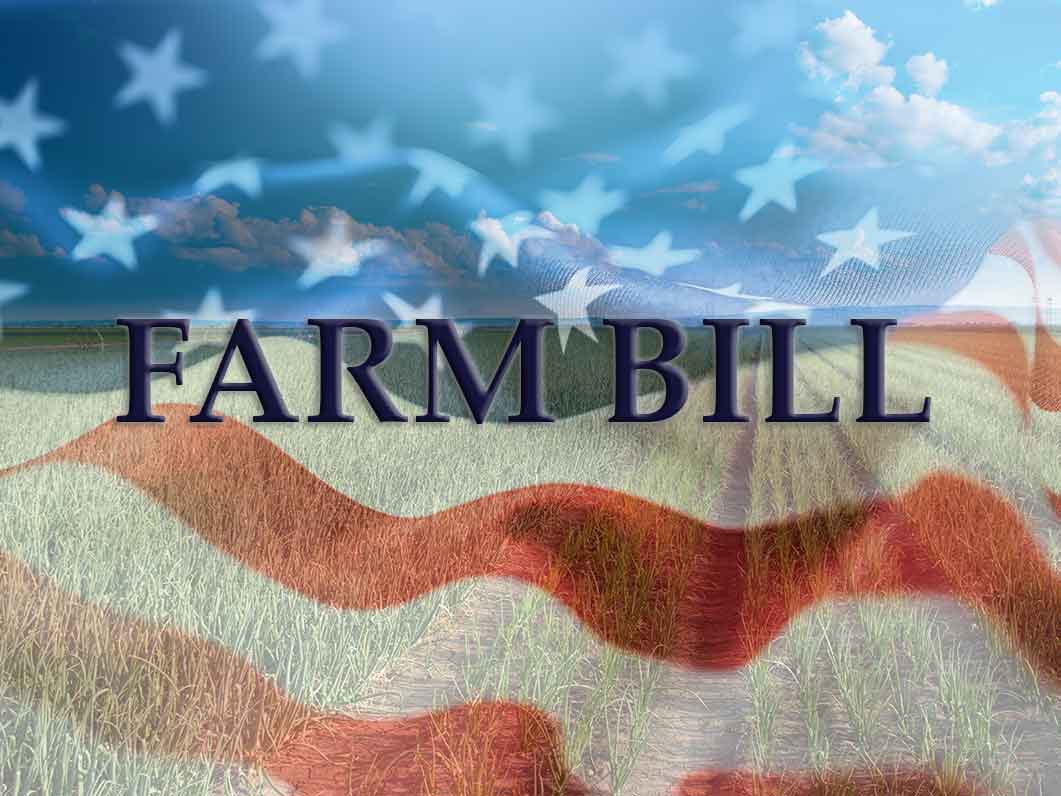Indiana farmer Nick Carter testified Wednesday, June 7, before the Senate Committee on Agriculture, Nutrition and Forestry. Committee, addressing Chairman Sen. John Fetterman (D-PA), Ranking Member Sen. Mike Braun (R-IN), and other members of the subcommittee on “how the Farm Bill works for specialty crop producers.”
A copy of Carter’s testimony was provided by the American Farm Bureau Federation on June 7.
In addition to describing his own enterprises and challenges, Carter provided an expansive look at what all small-scale special crop producers are facing, from labor to capital management, crop insurance, market access and other issues listed as farm bill priorities.
Carter, who owns Mud Creek Farm, co-founded the Market Wagon and is a member of Indiana Farm Bureau, said, “Because of the experience I’ve gained through these roles, I believe I can give a unique perspective on how the 2023 Farm Bill can provide vital resources to specialty crop producers.”
He explained that Mud Creek Farm, which is located within the City of Indianapolis, “is comprised of 20 acres that are home to 400 laying hens, a flock of lamb and goats – finishing 20 head per-year – a 1,600 square foot greenhouse and two acres of specialty crops.”
Crops include “a wide array of high-value consumer products including lettuce, spinach, tomatoes, cucumber, zucchini, green beans, peppers, sweet corn, and winter squash.” Carter added, “Our sales are all direct-to-consumer, with the majority coming through an on-farm retail stand, and a small number of products being sold online via Market Wagon. The business currently sustains one full-time equivalent (FTE), with plans to scale to three FTEs in the next five years.”
He continued, “In 23 cities around the Midwest and South, Market Wagon operates fulfillment hubs that use proprietary logistics technology and practices to deliver food from over 1,500 small farmers just like Mud Creek Farm directly to consumers’ doorsteps. The consumer experience is an e-commerce grocery service with an entirely unique supply chain comprised of small, diversified farms and food purveyors.”
The grower listed several “Key Challenges of Mud Creek Farm, and similar farms represented on Market Wagon,” starting with matching supply with demand. He said, “As small-scale growers, our specialty crop farms cannot meet the requirements to supply institutional buyers and outlets for downgraded products, which means the farm must find consumers for all of its highly perishable products as the crop is ready.
“These small farms employ various techniques such as succession planting, indeterminate crops, and season extenders (row covers, greenhouses, etc.) to diffuse supply over time.”
Another critical issue, Carter said, is matching labor demand with labor supply.
“Despite the diversification in product supply, the nature of the work is still heavily concentrated in the summer season,” he said. “Seasonal labor is often relying on unskilled workers, whereas crop production in this diversified method requires a workforce capable of diverse activities.”
Carter went on to say, “I need a labor force that can operate and troubleshoot small machinery, visually identify a fruit’s readiness for picking, and administer basic care to small ruminant animals— all with minimal supervision and a high sensitivity to schedule and timing of activities. As a result, the industry desperately needs congressional action on immigration reform as it prioritizes long-term investment in mechanization and automation research.”
The third issue he addressed is management of capital, and Carter said, “Discussions often center around access to capital, but that’s not the greatest problem. Most of the items required to scale even a small farm have lasting value, make great collateral, and are therefore bank financeable. The challenge is knowing where to deploy capital, and how to prevent over-leveraging such that debt service poses a risk of insolvency in the event of a bad season or crop.”
He said, “There are innumerable small implements – transplanters, mulch layers, manure spreaders – that could each create significant labor-saving and/or production improvements, but they require capital. The challenge is further complicated when a farm diversifies—as Mud Creek Farm has—into a wide range of crops, as well as livestock.
“Add to the implement for crop production a list of livestock equipment such as trailers, chutes, barns, feeders, waterers, and the very breeding stock itself. Managing capital isn’t a problem unique to small farms, but specialty crop producers face a different type of challenge due to the diversification of their operation.”
Looking at 2023 farm bill priorities, Carter referenced his “time as a member of INFB, Indiana’s largest agricultural grassroots organization representing farm families across all 92 counties.”
He said, “Nearly 270,000 members strong, our organization prides itself in being an advocate for Indiana agriculture, and, through Indiana Farm Bureau, I’ve had the opportunity to advocate for specialty crop producers by serving on INFB’s Diversified Ag Policy Advisory Group. This group is made up of specialty crop producers from across the state tasked with helping craft state and federal policy that supports diversified growers.
“At the state level, this group of specialty crop growers helped craft policy to further expand the options small, home-based vendors have to sell their products to local consumers. Ultimately, this policy priority turned into legislation that was signed into law by Gov. Eric Holcomb. Within the first year, we had six new vendors selling on Market Wagon as a direct result of this new legislation, my own farm included.”
And, Carter continued, “However, resources for specialty crop grows can’t just happen at the Statehouse. Congress must provide further resources for diversified specialty crop growers, and the 2023 Farm Bill provides the perfect opportunity to support these producers.
- Crop Insurance
Carter supports “a robust crop insurance program, which should entail expansion of insured commodities to include specialty crops as well as enhancements to Whole Farm Revenue Protection (WFRP) insurance that provide a more appropriate level of affordable coverage and safety net, along with reducing the amount of paperwork required.”
He said, “As implemented, the current crop insurance programs are not feasible for diversified farms like Mud Creek Farm. Yield records on a per-acre basis are unattainable for an operation that harvests multiple successions in quantities of row-feet, not acres. Other requirements for establishing prices and costs to measure the loss are challenging when labor, inputs, and land costs are all fungible across a diverse set of crops and activities.
“For these reasons, crop insurance alone is a small portion of the overall risk mitigation that enable small farmers to succeed. The diversification that I described in Mud Creek Farm is itself our greatest risk mitigation technique. If squash beetles diminish my cucurbit harvest, I can replant those rows with green beans. If lack of rain renders a sweet corn patch useless to harvest, I can enclose it with temporary fencing and graze off the stalks.
“As the committee considers risk mitigation for small farms, the scope of solutions should consider programs that encourage diversification. The existing Environmental Quality Incentives Program (EQIP) grant program, for example, can be leveraged to accomplish not only conservation goals, but diversification of farm activities, or the installation of risk-mitigating assets such as irrigation.
“Other forms of capital resources such as forgivable loans and grants, targeted toward investments that diversify a farm’s operations, would enable farms like ours to increase production without risk of loss.
- Market Access
He also lauded programs “such as the Local Food Promotion Program (LFPP) and Farm to School [which] are useful and meaningful tools for specialty crop growers.
He said, “Efforts to make the grants more accessible to small farmers, and less onerous to apply and manage, would extend the LFPP’s effectiveness. Schools are the largest local institutions, embedded in the communities where diversified farms exist, with federal buying power. In Indiana, the General Assembly passed legislation to allow schools to purchase produce from local FFA chapters.
“Congress should consider ways to give more flexibility and incentives to local schools to purchase locally grown fruits and vegetables from local producers.
“Senator Roger Marshall (R-KS) and Senator Peter Welch (D-VT) recently introduced a bill that would allow new ways for small producers and butchers to sell products across state lines. The Direct Interstate Retail Exemption for Certain Transaction Act, or DIRECT Act, is an important and long-overdue modernization of the FSIS code that removes a barrier for diversified farms such as Mud Creek Farm to sell direct to consumers. The legislation will provide more opportunities for small producers without compromising on food safety and actually expands traceability to avoid the spread of food borne illnesses.”
In addressing other priorities, Carter noted “crop insurance options and market access are critical areas for specialty crop growers, but there are several other improvements that this farm bill could provide to specialty crop producers,” including:
- Incorporating all types of domestic fruits and vegetables (fresh, frozen, canned and dried) into the Fresh Fruit and Vegetable Program providing an affordable option for increasing the variety available year-round for all and more market opportunities for producers. Priority must be given to fresh and locally grown product when available not withstanding price;
- Ensuring adequate funding for the specialty crop industry with emphasis on fundamental research, marketing and promotions, and pest management programs;
- The USDA giving more consideration to specialty crop growers when considering planting history for various programs;
- Defining “specialty crops” as any fruit, vegetable, nut or non-program crop grown for consumption and sales;
- Dedicated funding for specialty crop growers in working lands programs;
- USDA commodity purchases; and
- The fruit and vegetable industry developing a termed stopgap profit/loss assistance program to mitigate the impact of producer losses due to foreign imports.
Concluding his testimony, Carter thanked the subcommittee for its representation of agriculture, saying, “I truly love working and raising my family on our small, diversified farm, tackling the challenges it presents, and enjoying the successes we achieve. I look forward to answering your questions and discussing how the 2023 Farm Bill can further support our specialty crop growers.”


